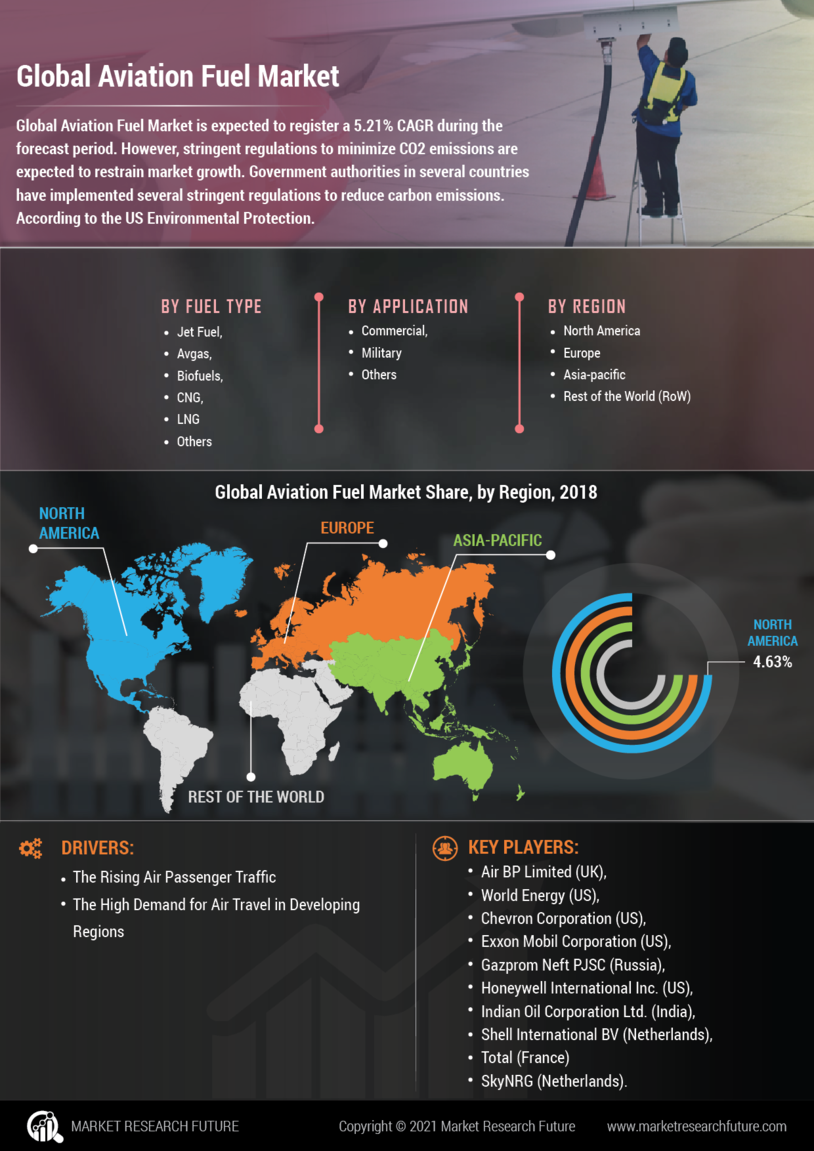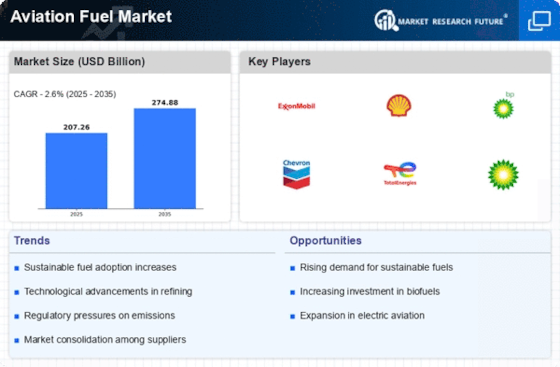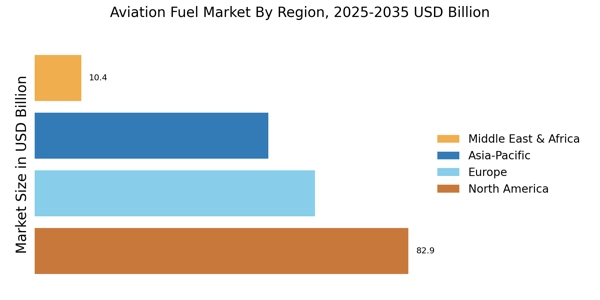Increasing Air Travel Demand
The aviation fuel Market is experiencing a notable surge in demand due to the increasing number of air travelers. As economies recover and expand, the International Air Transport Association projects that passenger numbers could reach 8.2 billion by 2037. This growth in air travel directly correlates with a heightened need for aviation fuel, as airlines strive to meet the rising passenger demand. Consequently, the Aviation Fuel Market is poised for expansion, driven by the necessity to fuel more flights and enhance operational efficiency. Airlines are likely to invest in fuel-efficient aircraft to accommodate this demand, further stimulating the aviation fuel sector. The interplay between rising air travel and fuel consumption suggests a robust trajectory for the Aviation Fuel Market in the coming years.
Geopolitical Factors Impacting Fuel Supply
Geopolitical factors are increasingly influencing the Aviation Fuel Market, particularly concerning fuel supply chains. Political instability in oil-producing regions can lead to fluctuations in fuel prices and availability, impacting airlines' operational costs. The Aviation Fuel Market must navigate these complexities, as disruptions in supply can have cascading effects on flight operations and profitability. Furthermore, trade policies and sanctions can alter the dynamics of fuel procurement, compelling airlines to seek alternative sources. The potential for geopolitical tensions to disrupt fuel supplies underscores the need for strategic planning within the Aviation Fuel Market. Airlines may need to diversify their fuel sources and invest in strategic reserves to mitigate risks associated with geopolitical uncertainties.
Regulatory Support for Sustainable Practices
The Aviation Fuel Market is increasingly influenced by regulatory frameworks that promote sustainable aviation fuels (SAFs). Governments and international organizations are implementing policies aimed at reducing carbon emissions from aviation. For instance, the European Union has set ambitious targets for reducing greenhouse gas emissions, which includes a significant push for SAF adoption. This regulatory support is likely to drive innovation and investment in the Aviation Fuel Market, as companies seek to comply with new standards. The potential for SAFs to reduce lifecycle emissions by up to 80% compared to conventional fuels presents a compelling case for their integration into the aviation sector. As regulations tighten, the Aviation Fuel Market may witness a shift towards more sustainable fuel options, reshaping the competitive landscape.
Technological Innovations in Fuel Production
Technological advancements are playing a crucial role in shaping the Aviation Fuel Market. Innovations in fuel production processes, such as the development of advanced refining techniques and alternative fuel sources, are enhancing the efficiency and sustainability of aviation fuels. For example, the emergence of biofuels derived from waste materials is gaining traction, potentially reducing reliance on traditional fossil fuels. The Aviation Fuel Market is likely to benefit from these innovations, as they not only improve fuel quality but also lower production costs. Furthermore, the integration of digital technologies in supply chain management is optimizing fuel distribution, ensuring that airlines receive the necessary fuel in a timely manner. This technological evolution may lead to a more resilient and efficient Aviation Fuel Market.
Economic Growth and Infrastructure Development
Economic growth and infrastructure development are pivotal drivers of the Aviation Fuel Market. As nations invest in expanding their airport facilities and enhancing air traffic management systems, the demand for aviation fuel is expected to rise correspondingly. The International Civil Aviation Organization indicates that air traffic is projected to grow at an annual rate of 4.3 percent over the next two decades. This growth is likely to necessitate increased fuel supplies to support new routes and expanded services. Additionally, emerging markets are witnessing a rapid increase in air travel, further propelling the Aviation Fuel Market. The interplay between economic development and aviation infrastructure is likely to create a favorable environment for fuel suppliers, as they adapt to the evolving needs of the aviation sector.


















